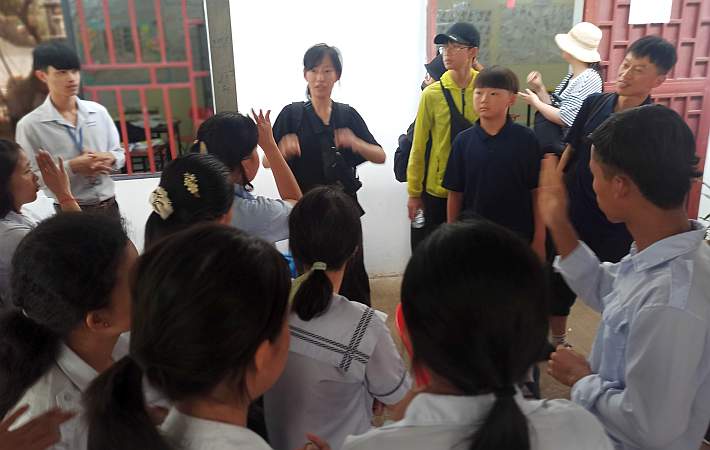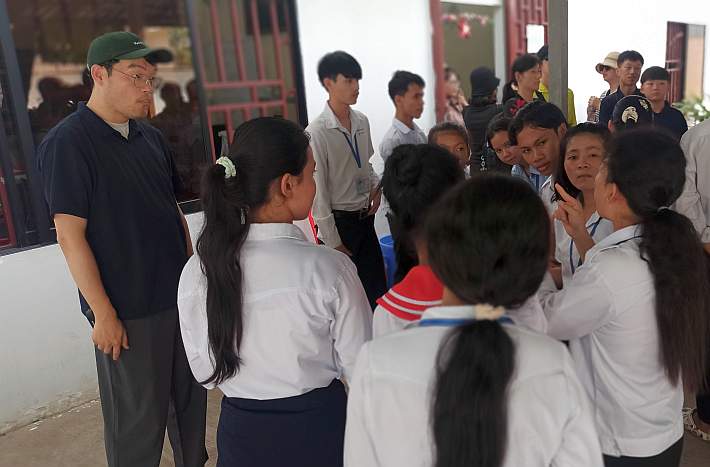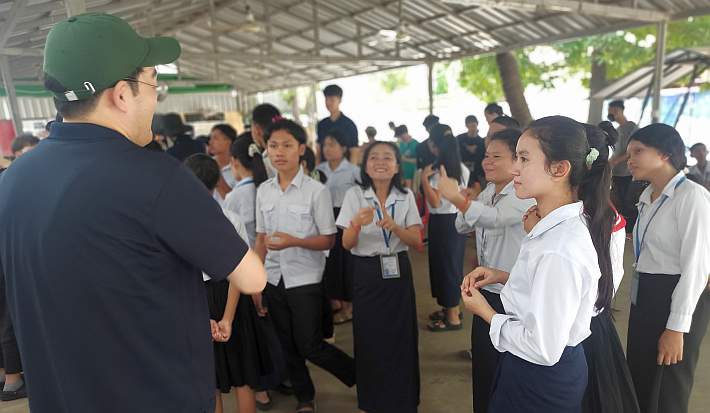Isolation is one of the most debilitating characteristics of deafness. Because deaf people often don’t share a common language with society, they can be ignored or shunted out of the mainstream of information and personal contact. That makes the visit of the Korean deaf group significant, just at a superficial level.

But another positive result of the visit is the opening of the eyes and minds of our deaf students to possibilities that are common in developed countries like Korea but are unheard of for deaf people in Cambodia. It is so important for them to gain a new vision and be challenged by a dream of who they can become.
That new vision can be a reassuring one, too. Over the years I have talked with deaf teenagers and have had them relate a fear and a question about when they will die–not at an old age but as they approach young adulthood. Too often deaf children never have the opportunity to meet and be around deaf adults. They literally never see them and some of the youth interpret that to mean they will die before they get old. Having a Korean deaf group with confident, mature, capable deaf adults–some with gray hair–come to DDP lets deaf youth know there is life after their teens.

